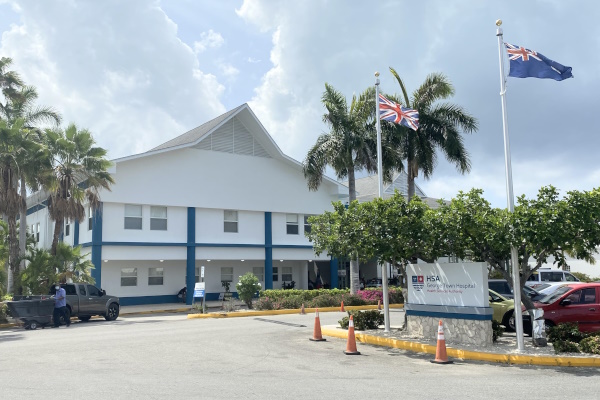[ad_1]

(CNS): With many local people still either uninsured or under-insured, the government’s healthcare bill is climbing while the local health insurance sector continues to make a profit as companies cherrypick their customers. Earlier this month, Cabinet approved another CI$13.5 million of public cash to cover healthcare costs this year for indigents and for those with inadequate insurance.
This additional multi-million dollar spending comes just a month after Finance Committee approved almost CI$40 million more than initially budgeted to cover the healthcare needs of local people for the financial year 2022/23. It is now not inconceivable that by the time the 2023/24 financial year closes, the public purse could have subsidised the health insurance sector to the tune of more than $100 million.
Using the national census, which was taken in the wake of the COVID-19 pandemic and is already woefully out of date, the Economics and Statistics Office estimated that around 93% of the population has health insurance. However, since the basic SHIC plan falls far short of what is needed, the health insurance industry is totting up its profits while taxpayers continue to subsidise the sector.
According to the brief summary of the Cabinet meeting on 5 July, the government has now added CI$9 million to the budget for tertiary care provided locally and overseas and another CI$4.4 million to pick up the tab for those who are not insured at all or who have already used up all their benefits.
Answering questions in Finance Committee last month, Health Minister Sabrina Turner said the number of people in need had increased in 2022 by over 16% and had grown another 4% so far this year. The value of claims was also rising significantly because healthcare costs were increasing, she noted.
Chris Saunders (BTW), the former finance minister, said it was absurd that while more than CI$200 million a year is collected in health insurance, “the taxpayers of this country still have to go find $73 million”.
He called for both the Cayman Islands Monetary Authority and the Health Insurance Commission to look into private health insurance companies that are not adequately covering the healthcare needs of customers, who are paying monthly premiums but not getting the cover they need. “We know that people out there have… plans that are absolutely no good when an emergency comes up,” he said.
Saunders suggested that some insurance companies should be shut down and said the country needed an honest conversation about how health insurance is provided, as he blamed the private sector for “taking money from people” and then selling them policies that are “absolutely no use”.
During his time as finance minister, Saunders looked into expanding the government insurance company, CINICO, so that it could provide health cover to more people and eventually allow it to offer property, motor and life insurance as well, thereby generating more income. But he has also hinted at the idea of making CINICO form the basis of a nationwide health insurance system to increase the pool.
Premier Wayne Panton, who chairs Finance Committee, said the rising health costs that the government was paying and the constant underestimation in annual budgets were challenging and had to be addressed. He said a “variety of initiatives” would be needed to tackle the unsustainable position government was in over the current healthcare problem.
Former premier Sir Alden McLaughlin said that while these line items had been “chronically underbudgeted” for a long time, he had not seen such a large divergence from the initially budgeted sum before.
[ad_2]
Source link

